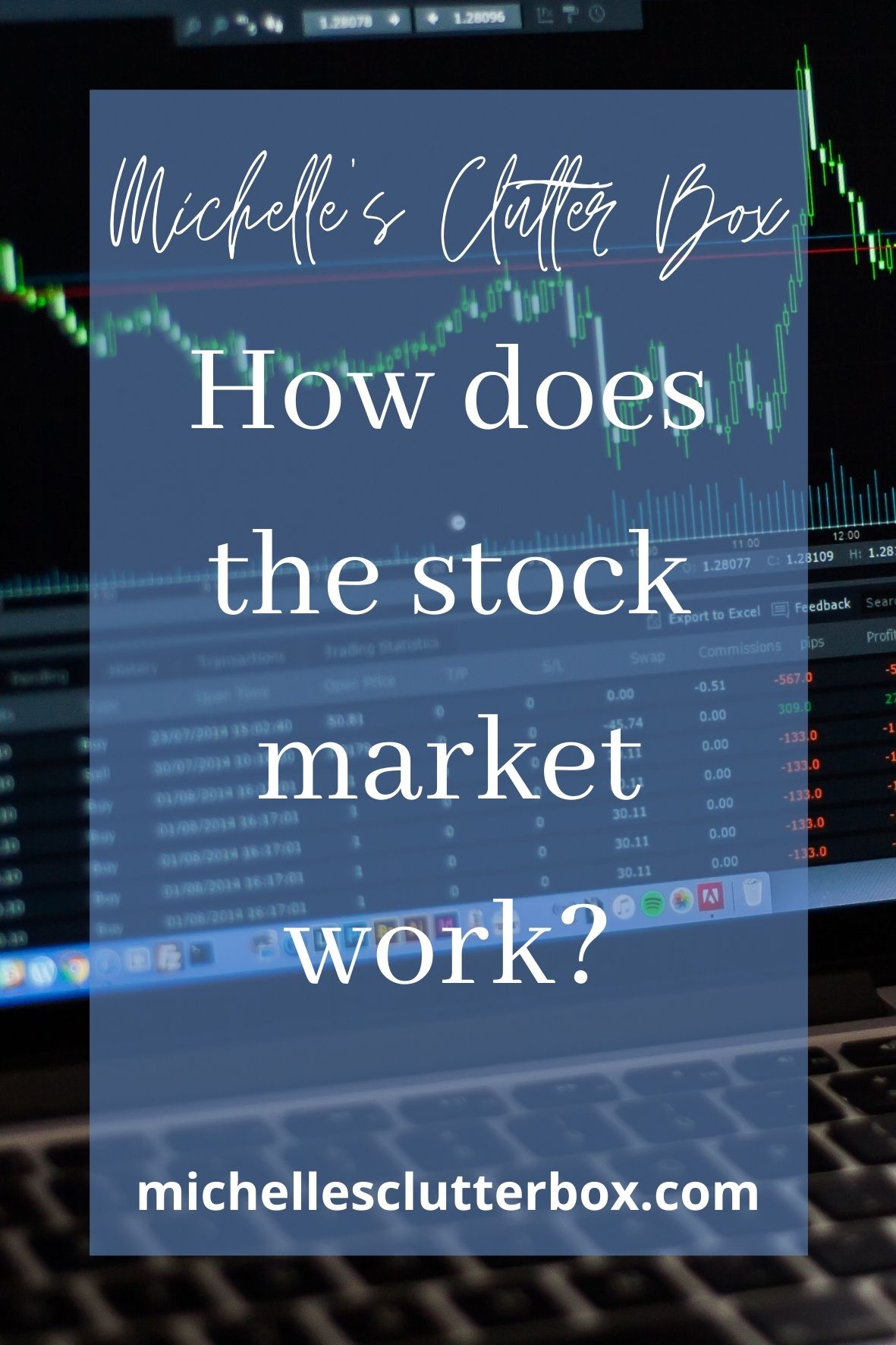How does the stock market work?

As we all know, because of Covid-19 the stock markets have been going up and down, but mostly down. I have recently started building up a portfolio of shares – which sounds impressive until you find out I only have about R600 ($35) worth of shares. But everyone has to start somewhere, right? My shares have been doing relatively well, not because I’m smart, but because I’m lucky. But how does the stock market work?
What is a share?
Well, the name explains it. You buy a part, a share, of ownership in a company that is listed on the stock exchange.¹
Businesses go public to raise money, usually to expand the business.¹ Selling shares makes more financial sense than to borrow money because a loan can be crippling for a new company that is still finding its feet.²
A company then offers those shares to the public in a process called an initial public offering, also known as IPO. Then the general public or investors buy the shares and trade with them. Once the shares have gone public, the shares are out of the hands of the company. Hence, you do not buy directly from a company, you buy from someone else – another shareholder.¹
The stock exchange
The gist of it
A stock exchange is a platform that brings buyers and sellers of shares together. The function of the stock market is to help those transactions take place.³
You can describe the stock market like an auction. Buyers and sellers negotiate what the share prices and then buy and sell. A buyer offers an amount that they are willing to pay, and this is often less than the seller wants to sell for. The difference between the amounts is named ‘bid-ask spread’.¹
To ensure sound financial practices, stock exchanges are regulated. This ensures ensure that transactions go through at the correct price within the agreed-upon time period.²
Everything is electronic
With the internet, most stock exchanges in the world are linked together.² Also, in this modern era, shares are sold electronically, either through banks, private brokers, or apps (that’s how I do it).¹
When you buy shares, you would traditionally use a broker, who is an expensive middleman that stands between the stock exchanges and you. They then trade stock on your behalf.¹ A broker is not necessarily a person, it can be any entity (stock trading company, like Easy Equities) or person, who has a license to trade stock.³
Market indexes
The respective stock exchanges keep track of the transactions made there – the supply and demand – and that influences the price of the shares (but I’ll talk about that a bit later).³
Market indexes reflect how well certain groups of shares are doing on the market. A market index can either reflect a specific sector (like communications), or the market as a whole. The S&P 500 is a well-known market index – it tracks the top 500 companies in the USA. These indexes are often used to gauge how well a country’s stock market is doing overall.³

Regarding the prices
The prices of the stock are determined by the principle of supply and demand. In that way, it is very much like an auction.²
If there are more buyers than sellers for a specific share, the price goes up. The opposite is also true. If there are more sellers than buyers for a share, the price will go down. Buyers may be willing to pay more if a stock is in demand, sellers may be willing to sell the stock for less if the demand is low. When the price someone is willing to pay, and the price someone is willing to sell at are the same, the transaction can go on.²
As you may have noticed, stocks are very much influenced by global events (like Covid-19), news, politics, economic reports, and any other juicy news.¹ The news influences how in-demand investors think a stock will be, that can be either a good or a bad thing.
Bears and bulls
Bears
You’ve surely heard of a bear market. The reason behind the name is that a bear makes you shake with fear. It means that share prices are going down, usually about 20% or even more. This would be across many indexes and not just one. A stock market crash can be described as a stock market that drops significantly in a short period of time, sometimes in as little as a day – in 1987 the stock market dropped by 23% in a day.³
Bulls
A bull market is basically the opposite of a bear market. That means the stock exchange is doing well and people are making money and investors are willing and confident to put money on the line. A bull market often follows a bear market and vice versa. However, bull market periods often last much longer than the average bear market period.³
There you have it – this is basically how the stock market works (I think). In the next part, I’ll elaborate a bit on whether it is a good idea to invest in the stock market. If I made some factual errors, please let me know (contact details below).
Michelle
P.S. If you’d like to contact me, feel free to comment below, send an email to thatmichelleperson@gmail.com, or follow me on Twitter @M_ClutterBox.
References










Comments
Trackbacks & Pingbacks
[…] the previous post, I wrote about how the stock market works. A lot of people are terrified of investing in the stock […]